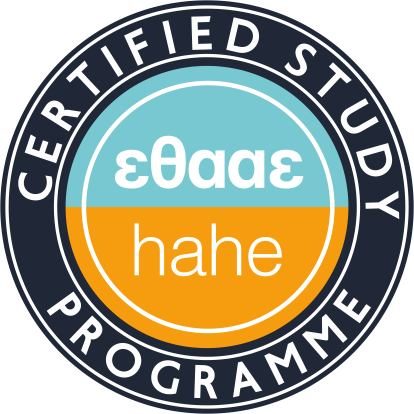ELECTRONIC PHYSICS (RADIOELECTROLOGY)
Electronic Physics (Radioelectrology)
1. General Information
The MSc in Electronic Physics (Radioelectrology) has been functioning under the Physics Department of Aristotle University of Thessaloniki since 1965. Starting from September 2018 the postgraduate program operates under the lastly reformed curriculum of studies, based on the present and future demands of research and labor market. The program leads to the MSc Degree on the following areas:
- Electronics and
- Telecommunications
After fulfilling the MSc Degree, students may continue their studies on the pursuit of a PhD. It is compulsory to attend and pass the examination in
- six (6) core courses (42 ECTS),
- five (5) specialization course (42 ECTS),
- one (1) elective course (6 ECTS) and
- diploma thesis (30 ECTS)
The curriculum is completed each year with a program of lectures by external specialists from either Greece or abroad. Educational excursions are also taking place in organizations and electronic / telecommunications technology companies.
Students have the obligation to attend 10 lectures organized within the framework of the curriculum.
2. Infrastructure
The existing infrastructure of the Electronics Lab and the Radiocommunications Lab is being used. It includes 2 25-seat classrooms, a computer room (14 workstations) and 2 fully-equipped Labs (specialized in Radiocommunications, Electromagnetic Compatibility, Electronics, Microelectronics and Control Systems).
3. Tuition and financial support
The MSc in Electronic Physics (Radioelectrology) has no tuition fees.
A number of postgraduate students participate in funded research projects run at the Electronics Laboratory and the Radio Communications Lab.
4. Graduates - Employment
During the 54 years of life more than 820 Radioelectrologists have graduated, covering openings in telecommunications and electronics companies of public or private sector, as well as openings in research and educational institutes.
In particular, the graduates acquire skills that enable them to:
- analyze and design analog and digital integrated circuits and systems,
- develop systems and techniques for electronic measurements and sensor systems,
- study and design the architecture of digital and embedded systems,
- analyze and design antennas,
- develop radiocommunication systems,
- estimate the electromagnetic exposure from emission systems through proper measurements,
- evaluate electronic and communication devices concerning EMC,
- develop and use design software for electronic circuits and telecommunication systems.
Furthermore, the graduates acquire the ability to
- work either independently, or in a team, in research activities, often in the framework of international research projects,
- search for new knowledge and bibliographic information on the latest scientific developments,
- present and defend their work to third parties.
5. Admission Requirements
Maximum number of entries: 20
Graduates of the Departments of Physics, Computer Science and Technology, Informatics, Telecommunications, Technology Management, Hellenic Air Force Academy, Electrical and Computer Engineering and Electronic and Computer Engineering, of the internal or equivalent departments officially recognized by the Greek state of foreign institutions.
Graduate applications from other relevant departments are accepted after additional special examinations as specified in the annual invitation for admission to the Postgraduate Program.
Qualification criteria: Grade of degree, time length of study, grades in undergraduate compulsory and optional courses related to the postgraduate course, Graduate thesis related to the postgraduate course, other qualifications (publications, papers, research experience, second degree, foreign language), interview. A good knowledge of the English language is necessary. It is certified by examination or possession of a certificate, at least level B2, by official bodies (recognized by ASEP).

